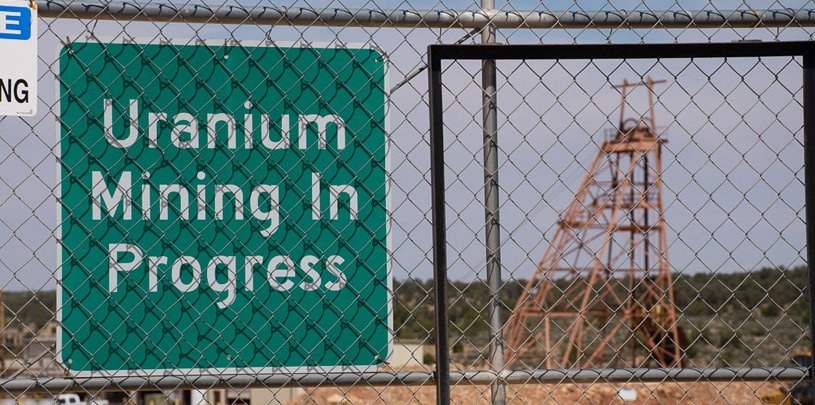
 by Anne Mariah Tapp, Energy Director
by Anne Mariah Tapp, Energy Director
In early April, we received the disappointing news that Federal District Court Judge David Campbell had decided that the Canyon uranium mine, located just six miles from the south rim of the Grand Canyon, could resume operations despite a plan of operations and environmental review dating back to the mid-1980s. We appealed Judge Campbell’s decision to the Ninth Circuit Court of Appeals last week, and our lawyers are currently working to ensure that the Canyon Mine does not resume operations in June, as currently scheduled.
Part of the reason that the Forest Service allowed the Canyon Mine to re-open is the obsolete and unsafe regulations that allow uranium mining companies to play Russian roulette with America’s most treasured public lands.
To address this problem, we’re launching a second line of defense. Using a legal tool called a "petition for rulemaking," we’re asking the federal agencies to change these antiquated regulations.
In the 30 years since Canyon Mine’s original review and approval, a lot has changed. We’ve moved from CD players to Spotify, swapped Polaroids for Instagram, and gone from no internet to 4G networks.
Do you trust uranium mining permits that were reviewed and approved before something as basic as DNA fingerprinting technology had been discovered?
Circumstances have changed significantly in ways that merit new environmental review and reconsideration of the Canyon Mine’s approval. To name just a few:
Despite all this, the Forest Service did not even consider these changed circumstances in an environmental review, require a new plan of operations, or issue a new approval.
Under the Administrative Procedures Act, citizens can propose changes to federal regulations, such as the regulations that govern uranium mining on federal public lands. We are using this tool to protect the Grand Canyon and public lands across the West threatened by the current practices.
We are asking the federal agencies to address several problems in the existing rules with these four changes:
Currently, uranium mines’ plans of operations remain valid in perpetuity. Our petition limits the duration of approved plans of operations to 20 years, with the option to apply for 20-year renewals.
According to current laws, uranium mines can go on and off standby indefinitely without new review. Our petition requires uranium mines to receive review under federal law, as well as new approval for any mining operation that has been inoperative for ten or more consecutive years.
Right now, federal agencies are not required to conduct annual inspections. Our petition requires the BLM and Forest Service to regularly inspect mining operations, and it also requires mining operators to gather and disclose information regarding the conditions of mines during non-operational periods.
Currently, firm reclamation deadlines aren’t required, and there are no long-term groundwater monitoring requirements. Our petition imposes deadlines for commencing and completing reclamation activities once a mining operation ceases and imposes long-term monitoring requirements for surface water and groundwater quality.
The Grand Canyon and our public lands deserve better protection. As we strive to make the 20-year ban on new uranium mining in the Grand Canyon permanent, this petition provides an important second line of defense against the existing mines.
A small victory in the legal case challenging Daneros uranium mine, near Bears Ears National Monument.
Read MoreGroundwater pumping at a uranium mine near the Grand Canyon will affect the canyon's springs, scientists says.
Read MoreA rally in Salt Lake City followed by a spiritual walk in White Mesa demonstrate the Ute community's determination to see uranium mill close.
Read More